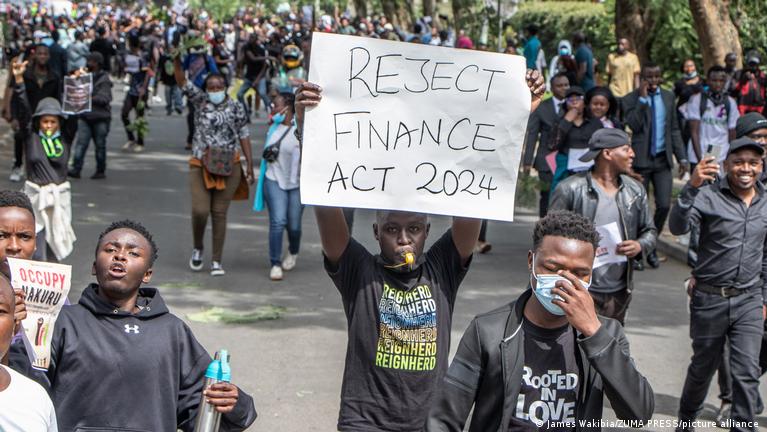
The current Generation Z (Gen Z) protests against the political elite in Kenya have been
unprecedented in both scale and effectiveness. They have managed to make the government
shelve the unpopular Finance Bill 2024, a feat never before seen in Kenya’s history. Organized
through social media without any centralized leadership, these protests have continued,
demanding more accountability from the government and even hinting at potential regime
change.While the political implications of these protests are significant, it is crucial to analyze their
impact on the agricultural value chain, a sector critical to the Kenyan economy.
Immediate Impact on Agricultural Markets
For commercial agriculture, a functioning market is essential to maintain the value chain from
producer to consumer. The protests, particularly on designated days such as Tuesdays and
Thursdays, have disrupted this market functionality. The logistical challenges posed by these
protests, including the movement of goods and people, have hampered the efficiency of
agricultural markets. This disruption is exacerbated when protests turn violent, leading to loss of
goods and increased instability.
Such instability affects farmers directly. When markets are disrupted, the entire supply chain
suffers, leading to delays in getting produce to market and increased spoilage rates. Farmers,
especially those dependent on timely sales to maintain their livelihoods, find themselves in
precarious situations.
Long-Term Benefits of Accountability
Despite these short-term challenges, the issues raised by Gen Z protesters hold the potential for
long-term benefits for the agricultural sector. The rejection of the Finance Bill, for instance,
provided immediate relief to farmers who were facing increased taxes on motor vehicles
(including tractors) and certain agricultural products. The protesters’ demands for greater
government accountability could further benefit farmers if they lead to systemic changes.
One notable example is the recent scandal involving fake fertilizer distributed by alleged
government operatives. This incident severely impacted farmers, yet no significant action has
been taken against those responsible. Greater accountability in government could prevent such
occurrences, ensuring farmers have access to genuine, high-quality inputs essential for their
productivity.
The Role of EFKen Leasing in Supporting Farmers
As a key player in the agricultural value chain, EFKen Leasing offers asset financing solutions
that empower farmers to invest in modern equipment and technology. By providing flexible
financing options, EFKen Leasing helps farmers acquire essential assets like tractors and other
machinery, which are crucial for increasing efficiency and output.
In times of political and economic uncertainty, access to reliable asset financing becomes even
more critical. EFKen Leasing remains committed to supporting farmers through these
challenging times, ensuring they have the resources needed to maintain and enhance their
productivity.
Conclusion
While the ongoing Gen Z protests in Kenya present short-term disruptions to the agricultural
sector, the potential for long-term positive outcomes cannot be ignored. Increased government
accountability and the rejection of detrimental policies can create a more favorable environment
for farmers, ultimately benefiting the entire agricultural value chain.
Farmers, despite the immediate challenges posed by the protests, are hopeful that these
actions will lead to lasting improvements in governance and market stability. EFKen Leasing
stands ready to support the agricultural community through these transitions, providing the
asset financing necessary to foster growth and resilience in Kenya’s agricultural sector.
Lydia Maina is the Business Development Manager for Nairobi and Central Region at EFKen
Leasing.




